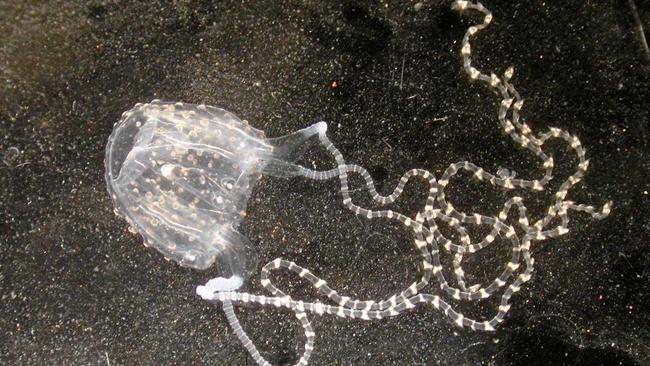Expert: protect against irukandji and jellyfish
Jellyfish and irukandji expert warns people to wear protective clothing while swimming in the sea.

Whitsunday
Don't miss out on the headlines from Whitsunday. Followed categories will be added to My News.
A JELLYFISH expert has warned that people should wear protective clothing when swimming in the Whitsundays, especially at this time of year.
While stings from jellyfish and irukandji can be painful, Marine Stinger Authority director Lisa Gershwin said they should not stop people from enjoying the beach.
Rather, she said people should simply don protective clothing such as a stinger suit when they entered the water. Her warnings come on the back of at least two jellyfish stings in Airlie Beach during the past two weeks.
The most recent was a seven-year-old boy who was stung in Shingley Drive on Tuesday, while a woman was stung in the water at Shingley Beach in the days leading up to Christmas.
Both were treated at Proserpine Hospital.
Dr Gershwin has studied irukandji and box jellyfish for the past 21 years.
She has named 14 of the 16 known species of irukanji and has discovered more than 216 new species of jellyfish.
Given her studies of the creatures, Dr Gershwin said she would never enter the water in the tropics without protective clothing and likened wearing them to wearing a seatbelt.
Protective clothing should be as normal and natural as wearing a seatbelt or sunscreen," she said.
"Just because they (jellyfish) are out there, doesn't mean we have to get stung by them."
Dr Gershwin did, however, warn that when irukandji were around, they tended to appear in numbers, and at these times, she said, people should stay out of the water entirely that day.
However, they also appeared on their own at times, and this was what protective clothing helped against.
Dr Gershwin said if a person was stung by an irukandji or box jellyfish in the tropics, they should apply vinegar immediately.
This was also recommended by the Australian Resuscitation Council which set the guidelines for first aid, Dr Gershwin said.
"The vinegar has the best chance of minimising the venom," she said.
"The vinegar won't stop the pain of the sting or stop the action of any sting on board.
"In most stings, you get 10 to 20 per cent of the sting at the beginning.
"You are trying to stop the other 80 to 90 per cent from injecting venom."
Dr Gershwin is the co-creator of The Jellyfish app for smartphones which she said aimed to give people information about jellyfish and make them less scared of them.


